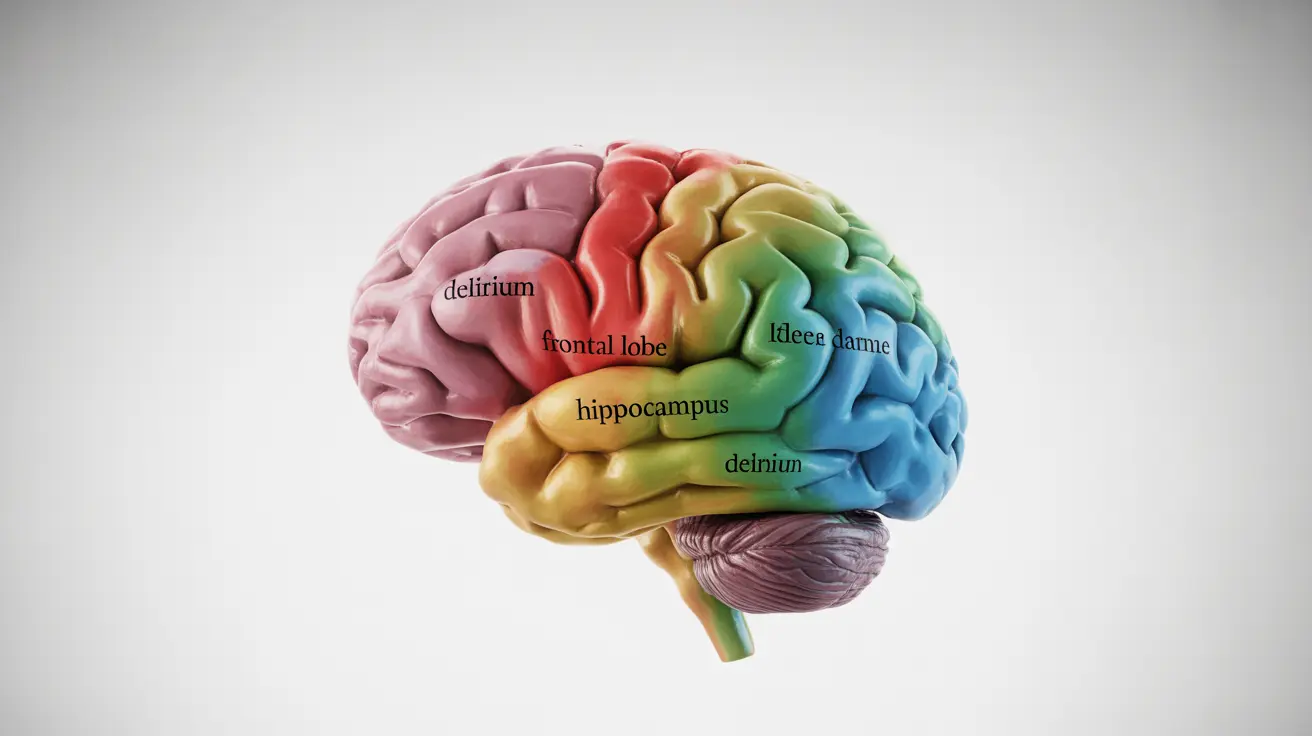When it comes to cognitive impairment in older adults, distinguishing between delirium and dementia is crucial for proper medical care and treatment. While these conditions may share some symptoms, they are distinctly different in their onset, progression, and management approaches. Understanding these differences can literally save lives, as delirium often requires immediate medical attention.
This comprehensive guide will help you understand the key distinctions between these conditions, their causes, and why accurate diagnosis is essential for appropriate care and treatment.
Key Characteristics and Onset
The most striking difference between delirium and dementia lies in how they develop and progress. Delirium appears suddenly, often within hours or days, while dementia typically develops gradually over months or years.
Delirium Characteristics
Delirium is characterized by:
- Sudden onset of confusion
- Fluctuating mental state throughout the day
- Difficulty focusing or maintaining attention
- Disorganized thinking
- Changes in consciousness level
- Disorientation to time and place
Dementia Characteristics
Dementia typically presents with:
- Gradual cognitive decline
- Progressive memory loss
- Consistent cognitive state throughout the day
- Preserved consciousness level
- Difficulty with complex tasks
- Language problems
- Impaired judgment
Causes and Risk Factors
Delirium Triggers
Delirium usually has specific underlying causes that require immediate attention:
- Infections (particularly UTIs in elderly patients)
- Medication side effects or interactions
- Dehydration
- Severe illness or surgery
- Alcohol or drug withdrawal
- Electrolyte imbalances
- Sleep deprivation
Dementia Development
Dementia results from various underlying conditions affecting brain function:
- Alzheimer's disease
- Vascular problems
- Lewy body disease
- Frontotemporal degeneration
- Long-term medical conditions
- Genetic factors
Treatment Approaches and Management
The treatment approaches for these conditions differ significantly. Delirium requires immediate medical intervention to address the underlying cause, while dementia management focuses on long-term care and symptom control.
Managing Delirium
Treatment priorities include:
- Identifying and treating the underlying cause
- Maintaining hydration and nutrition
- Reviewing and adjusting medications
- Creating a calm, supportive environment
- Ensuring proper sleep patterns
- Regular monitoring of vital signs
Managing Dementia
Long-term care strategies focus on:
- Medication to manage symptoms
- Cognitive stimulation therapy
- Lifestyle modifications
- Safety measures at home
- Caregiver support and education
- Regular medical follow-up
Frequently Asked Questions
What are the main differences between delirium and dementia in terms of symptoms and progression?
Delirium develops rapidly (hours to days) with fluctuating confusion and attention problems, while dementia progresses slowly (months to years) with consistent cognitive decline and memory issues. Delirium typically affects attention first, while dementia primarily impacts memory initially.
How can I tell if someone's sudden confusion is delirium or a sign of dementia?
Sudden confusion, especially if it fluctuates throughout the day and appears alongside changes in awareness or attention, typically indicates delirium. Dementia-related confusion develops gradually and remains relatively stable throughout the day. When in doubt, sudden changes should be evaluated immediately by a healthcare provider.
What causes delirium, and how is it treated compared to dementia?
Delirium is usually caused by acute conditions like infections, medications, or metabolic imbalances and requires immediate treatment of the underlying cause. Dementia, caused by progressive brain changes, requires long-term management strategies and supportive care rather than acute intervention.
Can a person with dementia also develop delirium, and what does that mean for their care?
Yes, people with dementia are actually more susceptible to developing delirium. When this occurs, it requires careful medical attention to identify and treat the underlying cause while managing both conditions. This situation often necessitates hospitalization and specialized care approaches.
Why is it important to quickly diagnose and treat delirium differently from dementia?
Quick diagnosis and treatment of delirium is crucial because it's often caused by serious, potentially life-threatening conditions that require immediate medical intervention. Unlike dementia's gradual progression, delirium can be reversed if the underlying cause is promptly identified and treated.




